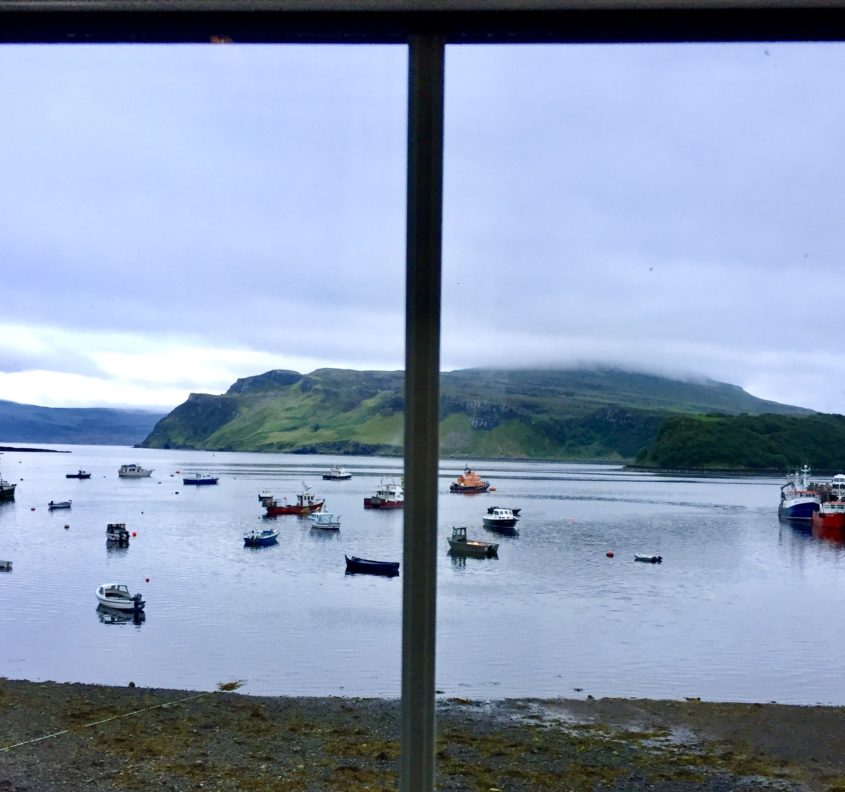The chief inspector, flanked by two officers of the Coast Guard in Argyll, is a short and lumpy man, with grey hair. His dark-blue uniform with its gold loops seems to have been draped around him. He is overweight. Age has found him. He has had to climb to the site of the drill, and now he stops speaking to let his wind restore itself. There is something very likable about him. He doesn’t seem to mind that he stand on lower ground than the men he speaks to. There is noticeable discomfort, however, in the manner of his subordinates, who keep inching toward higher group after the chief inspector resumes speaking.
pg. 83, The Crofter and the Laird
I have today killed Calum McAllister’s chicken, which used to peck around in the environs of the cattle grid where the road crosses the line between Machrins and Kilchattan. Calum McAllister is a cotter – that is, a general hand who is neither crofter nor farmer but makes his living doing jobs where he can find them – and he lives in Machrins, a few yards from the Kilchattan fence line. His chicken made the mistake of jumping up onto the cattle grid a second or two before my car passed over it. News of the death of this chicken apparently reached every ear on the island before the pinfeathers had settled to the ground. It is not a scandal. No one seems to hold it against me. It just is news, and I am already becoming known as the one who killed Calum McAllister’s chicken – a description that probably translates into a single word in Gaelic. Looking around, I saw no one coming from Calum McAllister’s house, so the first thing I did was go to the croft to ask Donal Gibbie what the chicken might have been worth. ‘I don’t know what the legalities are, but we should keep up the good will,’ Donald Gibbie said. ‘I suggest you give Calum twelve bob.’ I returned to the cattle grid. The chicken was gone. I knocked on McAllister’s door. He opened it – a tall, gaunt, unshaven man, a widower. I said that I had killed his chicken, and he said, ‘I know. I know that.’
I said I was very sorry, and he said, ‘It’s not your fault. It’s the chicken’s fault. The chicken should not have been in the road.’
‘I’d like to give you twelve shillings for the chicken.’
‘That is unnecessary.’‘But I think I should pay for it, and I will feel better if you let me do that.’
‘You can pay if you like, but the chicken should not have been in the road.’
pgs. 91-92, The Crofter and the Laird

